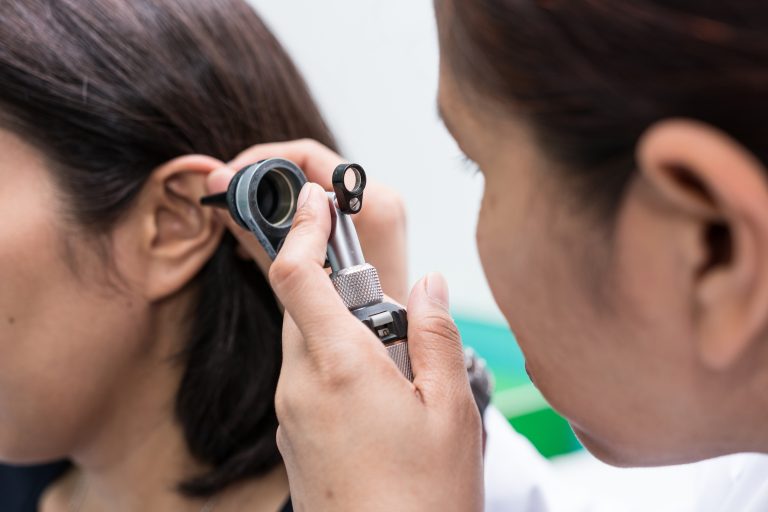13 Things to Consider Before Getting a New Piercing

Do you love the idea of getting ear tunnels or ear gauges?
Getting a new piercing can be a fun and exciting way to express yourself, but it’s important to do your research and consider all the factors before taking the plunge. The key is to make sure that a new ear piercing won’t cause health issues down the line.
In this article, we go through things to consider before getting a piercing and why each one is important. Keep reading to learn more.
Table of Contents
1. Placement
The first thing to consider when getting a piercing is placement. Different areas of the body will have different levels of pain and healing times. It’s important to research the specific piercing you’re interested in and talk to your piercer to get a good idea of what to expect.
You should also consider how visible the piercing will be and if it will be appropriate for your workplace or other social situations.
2. Piercer Qualifications
The qualifications of your piercer are crucial when getting a piercing. You should always choose a piercer who is experienced, licensed, and reputable. Look for reviews and recommendations from other customers and make sure your piercer uses sterile equipment and follows proper safety procedures.
You can also ask to see their portfolio of work to make sure they have experience with the type of piercing you want.
3. Allergies
If you have a history of allergies or sensitive skin, it’s important to consider this when getting a piercing. Certain metals used in piercings, such as nickel, can cause an allergic reaction.
Your piercer should be able to recommend hypoallergenic jewelry options or test for metal allergies before proceeding with the piercing.
4. Pain Tolerance
Pain is a part of the piercing process, so it’s important to consider your pain tolerance before getting an ear piercing. While some people find the process to be relatively painless, others may find it to be very uncomfortable. It’s important to be honest with yourself about your pain tolerance and talk to your piercer about what to expect.
They may be able to recommend numbing creams or other methods to minimize discomfort.
5. Healing Time
Different piercings will have different healing times, and it’s important to be patient and take care of your ear piercing during the healing process. Your piercer will be able to give you a general idea of how long the healing process will take and what to expect.
Healing times can range from a few weeks for a simple earlobe piercing to several months for a cartilage piercing or dermal anchor.
6. Aftercare
Taking care of your piercing is crucial for a successful healing process. You should always follow your piercer’s aftercare instructions carefully and avoid touching or twisting your ear piercing. You may need to clean your piercing regularly with a saline solution or another recommended solution.
7. Lifestyle
Your lifestyle is an important factor to consider when getting a piercing. If you play sports or engage in other physical activities, you may need to be extra careful to avoid injuring your ear. Similarly, if you work in an environment where piercings are not allowed or may be a safety hazard, you may need to consider getting a piercing that can be easily hidden or removed.
Here’s a great resource for getting ear gauges.
8. Cost
The cost of ear gauges can vary depending on the piercing type and location, as well as the qualifications of your piercer. It’s important to consider the cost and make sure it fits within your budget. However, it’s important not to sacrifice quality for cost and choose a reputable piercer who uses sterile equipment and follows proper safety procedures.
You should also factor in the cost of aftercare products and potential additional medical expenses in case of complications.
9. Personal Style
Your personal style and aesthetic should also be considered when getting a piercing. You may want to choose a piercing that complements your overall look or adds a unique touch to your style.
It’s important to consider how the piercing will look with your clothing choices and if it will fit your personal preferences.
10. Long-Term Commitment
It’s important to remember that a piercing is a long-term commitment. While some piercings can be easily removed or allowed to close up if you change your mind, others may leave a visible scar or require surgical removal.
11. Medical History
Your medical history can also play a role in whether or not you should get a piercing. Certain medical conditions or medications may affect the healing process or make you more prone to infection.
It’s important to talk to your piercer and healthcare provider about any medical concerns you have before getting a piercing.
12. Timing
Timing is also an important factor to consider when getting a piercing. You should avoid getting a piercing during times of high stress or when your immune system may be weakened, such as during an illness.
13. Social Stigma
It’s also important to consider any social stigma associated with piercings in your community or workplace. While piercings are becoming more mainstream and accepted, there may still be certain situations where a visible piercing could be viewed negatively.
A Guide to Getting a New Piercing
There’s nothing more fun than looking forward to your next piercing. Just take a moment before committing to that new piercing to make sure it’s the right choice for your health and lifestyle.
Please continue exploring the content on this blog to find more cool articles filled with fashion and beauty advice.






